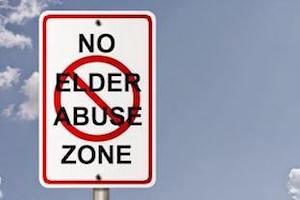for Over 25 Years
Civil Claims for Elder Patient Rights Abuses in California

Civil claims for elder patient rights abuses in California shouldn’t be necessary in a “perfect world” but, unfortunately, the elderly are some of the most vulnerable in our society and too often fall prey to physical, emotional and/or financial abuse in skilled nursing facilities or similar settings. It is estimated that the State of California has over 1200 skilled nursing care facilities with over 100,000 beds at approximately 85 % capacity or more. While most of these facilities maintain high standards, neglect and abuse can and still do occur with far too much frequency. What are the rights of the patients (or their legal representatives including conservators) and what does Cal. law say about a right to compensation in the event of a violation?
What are the Legal Rights of Elderly Residents in Long Term and Intermediate Care Facilities in the State of California?
Dating back to the early 1970’s, the Golden State realized that it had one of the largest populations over the age of 65 and that its nursing homes were and would continue to burgeon over time. The Cal. State Legislature enacted the Long-Term Care, Health, Safety, and Security Act of 1973 and, later, an actual “Bill of Rights” for elderly patients (found in Chapter 22 of the California Code of Regulations, section 72527). This regulation provides the following legal rights:
- To be fully informed of the rules of conduct, admissions process and charges for the facility
- To be fully advised and have a right to participate in the total health care plan for the patient
- To consent to or refuse to participate in any planned medical procedure and to be provided with sufficient information about the planned medical options in order to make an informed decision
- “To be transferred or discharged only for medical reasons, or the patient’s welfare or that of other patients or for nonpayment for his or her stay and to be given reasonable advance notice to ensure orderly transfer or discharge”
- To manage personal, financial affairs
- To be free from mental or physical abuse
- To be treated with dignity and respect
- Not to be required to perform services for the facitliy that are not a part of therapy or other similar goals
- To associate and communicate privately with persons of their choice (either in person, by telephone or by mail)
- To meet with or participate in social and religious activities
- To be allowed specified visiting hours and visitation with spouses or domestic partners and clergy
- To retain personal items including clothing
- To be free from requirements to purchase drugs or medical devices from any, particular source
- “To be free from psychotherapeutic drugs and physical restraints used for the purpose of patient discipline or staff convenience and to be free from psychotherapeutic drugs used as a chemical restraint” (as defined in California Health and Safety Code Section 72018 [i.e. “… a drug used to control behavior and used in a manner no required to treat the patient’s medical symptoms”).
- Rights also spelled out in California Welfare and Institutions Code 5325 (involuntary hospitalization for mental evaluation), and/or 4502, et. seq. (rights of the developmentally disabled)
If These Rights are Violated, What Civil Recourse Lies for the Patient or Their Representative?
Under California Health and Safety Code 1430(b), a violation of the Bill of Rights for elderly patients in skilled and intermediate nursing care facilities can arise a cause of action for monetary damages, injunctive relief, attorney’s fees and costs. The statute reads, in pertinent part, as follows:
“A current or former resident or patient of a skilled nursing facility, as defined in subdivision (c) of Section 1250, or intermediate care facility, as defined in subdivision (d) of Section 1250, may bring a civil action against the licensee of a facility who violates any rights of the resident or patient … The licensee shall be liable for the acts of the licensee’s employees. … (c) The remedies specified in this section shall be in addition to any other remedy provided by law.”
The Importance of Consulting and Retaining a California Elder Abuse Lawyer Familiar with the Legal Rights and Remedies Provided to Residents of Care Facilities
The civil liberties spelled out in the Elder Patient’s Bill of Rights are not all inclusive and legal recourse for older persons who have been subjected to mental, physical, or financial abuse at the hands of their caretakers are certainly not limited to those spelled out in Cal. H&S Code 1430. These types of claims require investigating promptly, securing the proper evidence of abuse or neglect, and presenting the claim in a timely manner under proper legal protocols and procedures. Consulting an attorney familiar with these types of claims is essential to a proper representation of the patient and zealous advocacy to not only compensate the victim but, prevent future conduct that harms vulnerable Californians.












